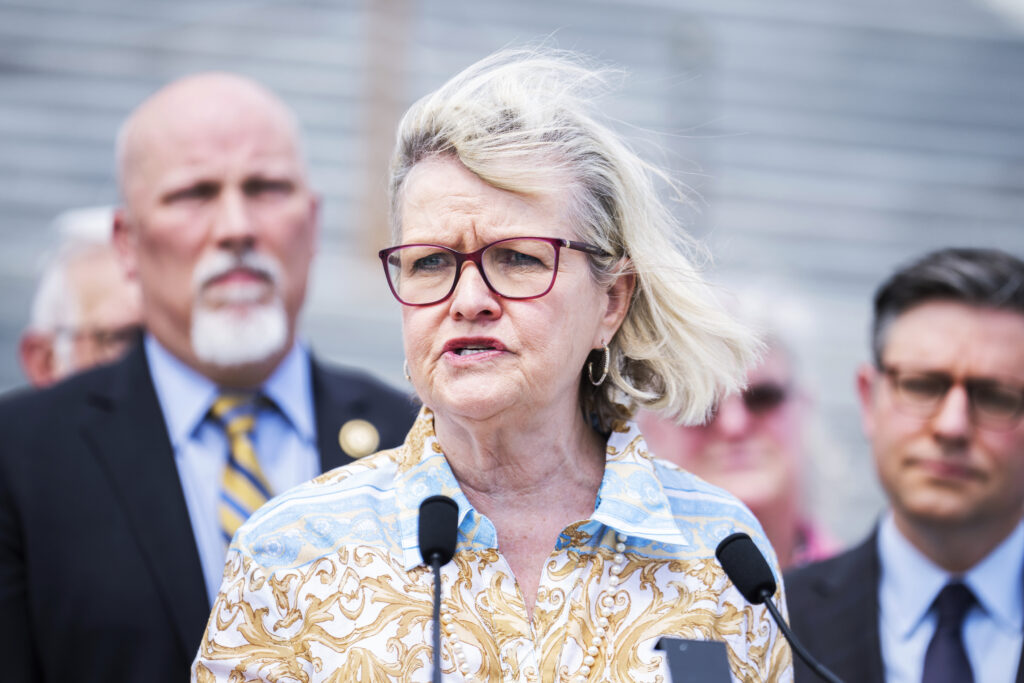Trump targets the left; a ‘Super SAVE Act’; and an era of ‘resistance to democracy’

This week’s biggest story for democracy didn’t happen in a courtroom, a legislative chamber, or a government agency. It happened on a college campus in Utah.
Even before we knew the shooter’s identity, President Donald Trump and some of his top allies were using the horrific murder of the influential conservative activist Charlie Kirk to call for a broad crackdown on progressive political activity — as Democracy Docket’s Jacob Knutson chillingly detailed.
Trump’s comments Friday morning — in which he declared he “couldn’t care less” about political violence perpetrated by the right — were perhaps even more troubling. Jacob put those remarks in the context of the president’s effort since returning to office to reward right-wing violence — including pardoning January 6 attackers — and to obstruct the governments’ efforts to track and defend against extremism.
Of course, the effort to suppress political opposition to Trump is hard to separate from the effort to make it harder for certain groups of Americans to vote. Democracy Docket’s Matt Cohen made the short walk over to Capitol Hill Thursday for an anti-voting rally, where Cleta Mitchell, the far-right lawyer who played a key role in Trump’s bid to overturn 2020, urged Congress to pass a “Super SAVE Act” — a turbo-charged version of the monster voter suppression bill approved by the GOP-controlled House in April.
Mitchell said she wants lawmakers to “codify” the push by the Department of Homeland Security (DHS) to comb through state voter rolls in pursuit of noncitizens. And Democracy Docket’s Jim Saksa offered more details on that effort Thursday, confirming that the Justice Department, which has been pressuring states to hand over voter roll data, is sharing it with DHS. The collaboration will help DHS “prevent illegal aliens from corrupting our republic’s democratic process,” a DHS spokesperson told Jim, adding: “Elections exist for the American people to choose their leaders, not illegal aliens.”
Meanwhile, Republicans are also still working to rig next year’s midterms by redrawing House districts in their favor in as many states as possible. Democracy Docket’s Jen Rice has been keeping us up to date on events in Missouri, where the GOP on Friday sent to the governor’s desk a new map that gives them an additional House seat at the expense of Kansas City’s Black voters. Jen also worked with our graphics team to create an in-depth look at exactly how and where Texas’ recent gerrymander — which could give Republicans five more congressional seats — diluted the power of minority voters by dispersing them into separate districts with white-conservative majorities.
One of the few remaining viable legal tools to stop these attacks on the voting power of Black and brown voters is Section 2 of the Voting Rights Act, which bans racial discrimination in voting. So it’s no surprise that, as Jim explained on Tuesday, Republicans are attacking it from all angles. Thanks to a friendly Supreme Court, an upcoming case out of Louisiana could lead to a ruling that makes the landmark civil rights law all but useless for protecting minority voting rights.
Speaking to Jim, one leading historian offered an ominous take: “We’re now seeing one of a variety of periods of rolling back on democracy — of resistance to democracy.”